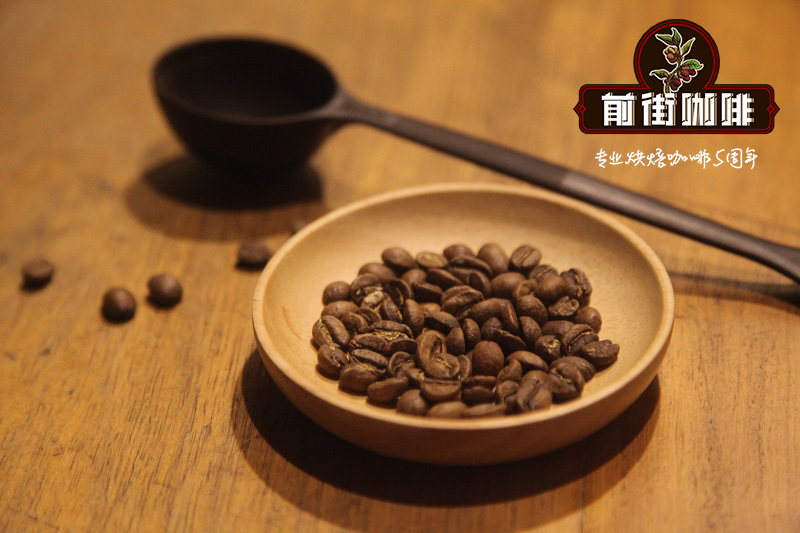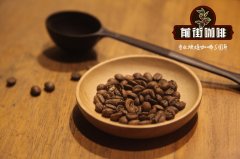What are the varieties of Salvadoran coffee beans? the impeccable balance of Salvadoran coffee beans

Professional coffee knowledge exchange more coffee bean information please follow the coffee workshop (Wechat official account cafe_style)
Front Street-introduction to Bolivian Coffee
There are many volcanoes in El Salvador, known as the "country of volcanoes". The fertile volcanic soil provides an excellent source of nutrients for coffee beans. Coffee trees are planted at an altitude of 1000, Murray, 1200 meters, and the temperature is cool and suitable. It is also an excellent geographical environment for the cultivation of Arabica coffee.
El Salvador, located in the center of Central America, is one of the oldest coffee birthplaces in the world, rich in Bourbon, Pacas and Pacamara coffee varieties. Coffee estates are located in the hills and volcanic slopes with the most fertile soil, mainly concentrated in six producing areas of Alotepec, Apaneca, El B á lsamo, Chichontepec, Tepaca and Cacahuatique, covering an area of 161000 hectares. Due to the special volcanic topography and soil, Salvadoran coffee has a unique flavor, mellow taste, moderate sweet and sour, rich aroma, and charming tonality.
El Salvador began to grow coffee commercially in the 1850s and became the fourth largest coffee producer in the world in 1880, becoming an important source of economy and a major export crop in El Salvador. But the civil war broke out in the 1980s, which reduced coffee production, and the market was also looking for other sources of coffee exports.
However, the civil war has had a positive impact on the quality of coffee in El Salvador, which has not changed the original species of coffee into improved varieties with high yields, as in neighboring countries in the same period, but has maintained a high proportion of native bourbon-grown coffee trees in the country. coupled with the fact that the country's volcanic ash-based soil is rich in minerals, the coffee it produces has excellent taste and great potential.
However, there is less organic matter in the soil, so sa farmers will use the pulp residue of the treated coffee beans or the organic matter under the coffee trees as fertilizers to make up for the lack of organic matter in the soil, so that the planting of coffee trees can better produce coffee beans with harmonious taste. In terms of treatment, Salvadoran coffee is mainly refined by tanning after washing and honey treatment.
Salvadoran coffee has excellent flavor balance, with sour, bitter, sweet and other flavor characteristics, the best baking degree is medium depth, the quality of Pacamara produced in El Salvador is the best, and the most important feature of its variety is obvious sour taste.
Knowledge: El Salvador is the smallest country in Central America but one of the most efficient coffee producers in the world.
In short: Qianjie is a coffee research hall, happy to share the knowledge about coffee with you, we share unreservedly just to make more friends fall in love with coffee, and there will be three low-discount coffee activities every month. The reason is that Qianjie wants to make more friends drink the best coffee at the lowest price, which has been Qianjie's tenet for 6 years!
END
Important Notice :
前街咖啡 FrontStreet Coffee has moved to new addredd:
FrontStreet Coffee Address: 315,Donghua East Road,GuangZhou
Tel:020 38364473
- Prev

Bolivian Coffee Bean Type Arabica Bolivian Coffee Flavor Characteristics
Professional coffee knowledge exchange More coffee bean information Please pay attention to coffee workshop (Weixin Official Accounts cafe_style) Front Street-Bolivia Coffee Introduction Bolivia is famous for producing high quality coffee, and like Brazil, it has good coffee cultivation and production conditions. Bolivian green beans of large uniform size are good green beans. Bolivian Calanavie has
- Next

Which kind of Salvadoran washed coffee is balanced and soft in the treatment of El Salvador coffee beans
Professional coffee knowledge exchange more coffee bean information please follow the coffee workshop (Wechat official account cafe_style) front street-Bolivian coffee introduction El Salvador is a small country full of volcanoes, but it is known as the coffee country because it is rich in coffee beans. Also because there are many volcanoes in the territory, enjoy the reputation of the volcano country. The volcanic soil created high-quality coffee trees and made El Salvador
Related
- Beginners will see the "Coffee pull flower" guide!
- What is the difference between ice blog purified milk and ordinary milk coffee?
- Why is the Philippines the largest producer of crops in Liberia?
- For coffee extraction, should the fine powder be retained?
- How does extracted espresso fill pressed powder? How much strength does it take to press the powder?
- How to make jasmine cold extract coffee? Is the jasmine + latte good?
- Will this little toy really make the coffee taste better? How does Lily Drip affect coffee extraction?
- Will the action of slapping the filter cup also affect coffee extraction?
- What's the difference between powder-to-water ratio and powder-to-liquid ratio?
- What is the Ethiopian local species? What does it have to do with Heirloom native species?

